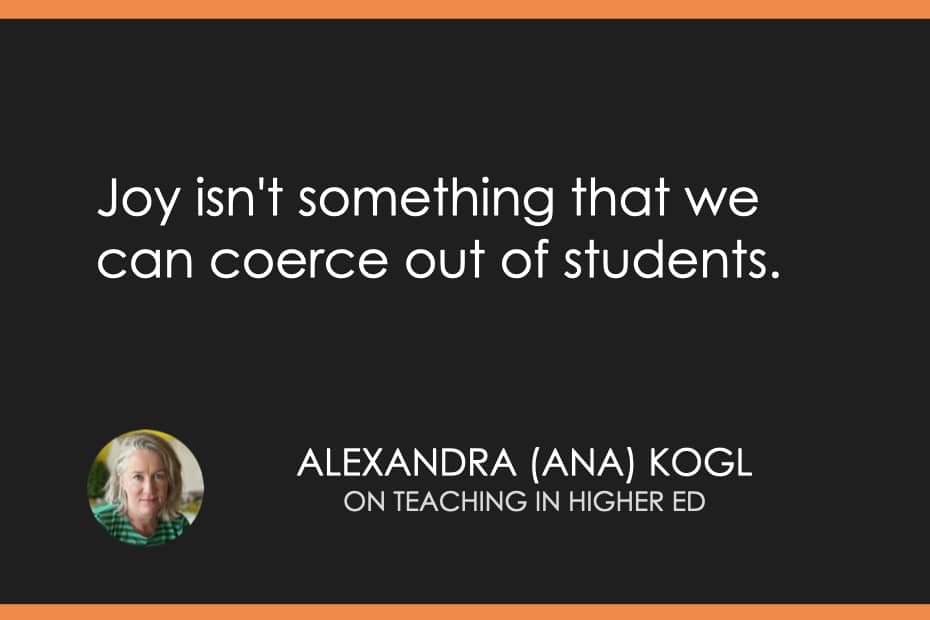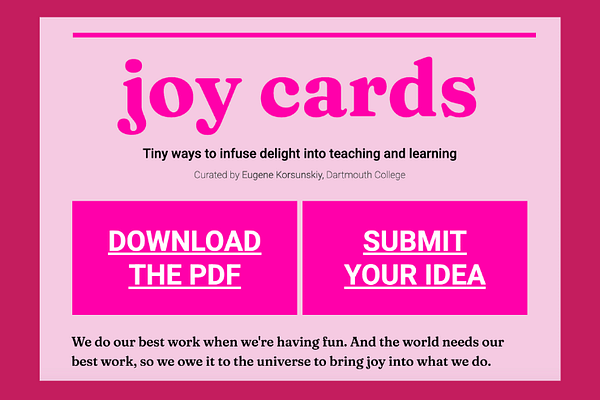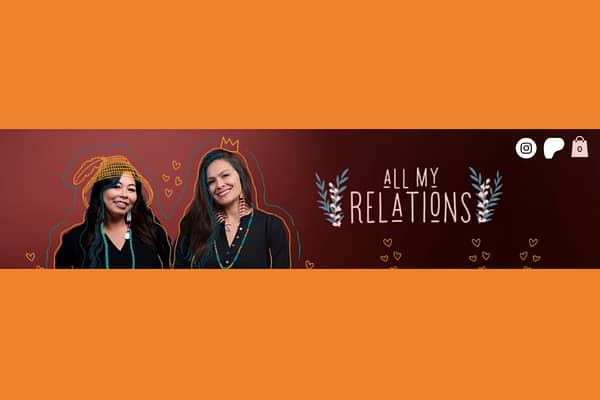Podcast (tihe_podcast):
Play in new window | Download | Transcript
Subscribe: Apple Podcasts | Spotify | RSS | How do I listen to a podcast?
Alexandra (Ana) Kogl shares about her chaper in Joy-Centered Pedagogy in Higher Education on episode 581 of the Teaching in Higher Ed podcast.
Quotes from the episode

I didn't expect to find joy in the classroom when I started teaching political science 20 years ago.
-Alexandra (Ana) Kogl
Joy isn't something that we can coerce out of students.
-Alexandra (Ana) Kogl
They seem to expect to feel dead inside in the classroom, which is heartbreaking.
-Alexandra (Ana) Kogl
The opposite of joy isn't suffering, it's numbness.
-Alexandra (Ana) Kogl
People survive injustice and they thrive.
-Alexandra (Ana) Kogl


